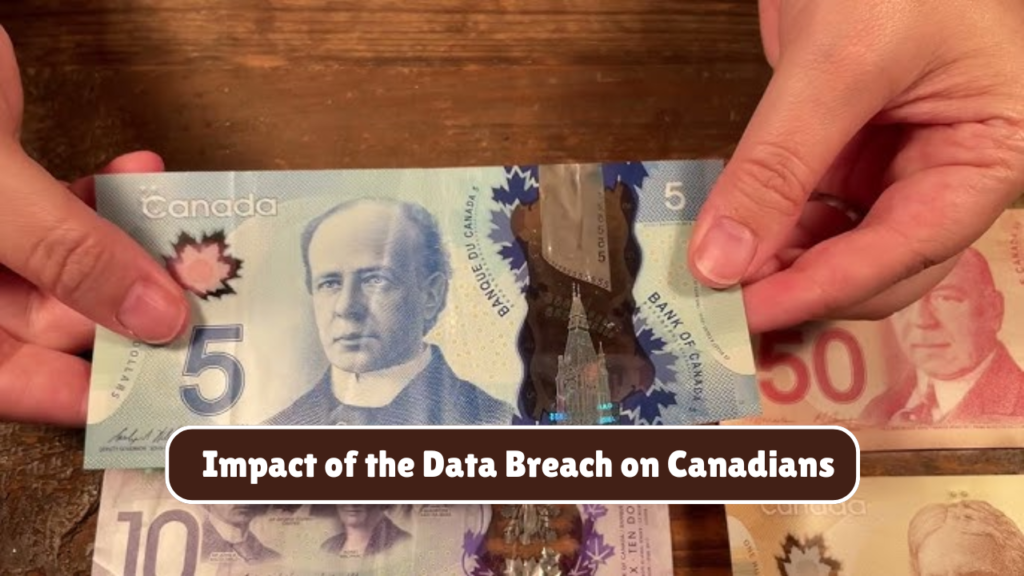In 2025, a significant legal case involving the Canada Revenue Agency (CRA) has captured the attention of Canadians. A class action lawsuit was filed against the CRA after it was accused of a massive data breach that potentially exposed the personal and financial information of thousands of Canadian citizens. The breach has raised concerns over the security of sensitive information held by government agencies and the potential risks for identity theft, fraud, and other forms of exploitation.
This article will provide an in-depth look at the CRA data breach, the class action lawsuit, the settlement, and what impacted Canadians can expect moving forward.
What Happened in the CRA Data Breach?
The Canada Revenue Agency (CRA) is responsible for managing tax records, administering benefits, and enforcing tax compliance for millions of Canadians. The CRA stores vast amounts of sensitive personal and financial data, including Social Insurance Numbers (SINs), tax returns, income statements, and banking information.
In early 2025, it was revealed that a data breach occurred within the CRA’s system, resulting in the unauthorized access and possible exposure of taxpayer information. While the CRA initially downplayed the breach, subsequent investigations uncovered that personal data of thousands of individuals had been compromised, including:
- Names and contact information
- Social Insurance Numbers (SINs)
- Bank account and financial details
- Tax filings and benefit claims
The breach was said to have occurred due to a vulnerability in the CRA’s security protocols, allowing unauthorized individuals to access sensitive data without proper oversight.

Class Action Lawsuit Against the CRA
As news of the breach spread, affected individuals began seeking legal recourse through a class action lawsuit. The plaintiffs in the case argued that the CRA failed to adequately protect their personal information and did not act quickly enough to notify individuals whose data had been compromised. Many Canadians expressed concerns about the long-term implications of the breach, including the risk of identity theft, fraud, and the possibility of false claims being made in their names.
The class action lawsuit accused the CRA of negligence, breach of privacy laws, and failure to uphold its responsibility to secure the sensitive data it collects from Canadian taxpayers. The plaintiffs sought compensation for the distress, financial harm, and potential risks caused by the breach.
CRA’s Response to the Allegations
In response to the allegations, the Canada Revenue Agency acknowledged the breach and offered an official apology to those impacted. However, the CRA maintained that it had followed all prescribed security measures at the time and that the breach was the result of a previously unknown vulnerability.
The agency also assured the public that it had taken immediate steps to rectify the situation, including:
- Implementing enhanced security protocols
- Conducting a thorough internal investigation
- Notifying affected individuals and offering identity theft protection services
- Cooperating with law enforcement and cybersecurity experts to track down the culprits
Despite these efforts, the CRA’s initial response was criticized for being slow and insufficient in preventing the breach from causing further damage. Many individuals felt that the CRA’s actions did not reflect the seriousness of the situation.
What Are the Terms of the Class Action Settlement?
As of mid-2025, the CRA has reached a settlement in the class action lawsuit. Under the terms of the settlement, the CRA has agreed to compensate those affected by the data breach. The key details of the settlement include:
1. Compensation to Affected Individuals
- Financial Compensation: Individuals whose data was compromised will be eligible for compensation. This compensation will vary depending on the severity of the breach and any harm caused to the individuals. Those who suffered financial losses due to identity theft, fraudulent activity, or other impacts will receive compensation for these damages.
- Credit Monitoring and Identity Theft Protection: Affected individuals will be provided with free credit monitoring services for a specified period, as well as identity theft protection, which will help protect their financial information from further harm.
- Emotional Distress Compensation: In recognition of the distress and anxiety caused by the breach, a portion of the settlement funds will be dedicated to compensating individuals for emotional distress, though this amount may vary on a case-by-case basis.
2. Enhanced Security Measures by CRA
As part of the settlement, the CRA has agreed to invest significantly in improving its cybersecurity infrastructure. This includes:
- Updating and strengthening encryption protocols used to protect sensitive taxpayer information.
- Implementing additional monitoring systems to detect any unauthorized access or breaches in real-time.
- Ongoing training for staff on best practices for data protection and privacy compliance.
3. Legal Fees and Administrative Costs
A portion of the settlement will be allocated to cover the legal fees of the plaintiffs’ legal representatives, as well as the costs associated with the administration of the settlement process.

Impact of the Data Breach on Canadians
For many Canadians, the CRA data breach represents a significant erosion of trust in government institutions. The breach has raised several important concerns:
- Privacy: Many Canadians expect the government to be a secure custodian of their personal data, but the breach has shown that even governmental bodies can be vulnerable to cyberattacks and data mishandling.
- Security of Future Data: The CRA’s failure to protect sensitive data has led many people to question the security of their other records, including tax documents and social benefits.
- Identity Theft Risk: The data breach has left individuals vulnerable to identity theft, with the possibility of fraudsters using stolen information to open bank accounts, file false tax returns, or even commit other forms of financial fraud.
In the aftermath of the breach, the settlement, while providing some compensation, has not fully restored the public’s confidence in the CRA’s ability to safeguard data. Many people are demanding stronger laws and measures to prevent similar incidents in the future.
Table: Summary of CRA Data Breach and Settlement Terms
| Category | Details |
|---|---|
| Data Breached | Personal and financial information of taxpayers |
| Key Affected Data | Names, SINs, tax filings, banking information |
| Settlement Compensation | Financial compensation, identity theft protection, emotional distress |
| CRA’s Response | Apology, free credit monitoring, enhanced security measures |
| Investment in Security | Strengthening encryption, real-time monitoring systems |
| Legal Fees and Administrative Costs | A portion of settlement allocated to legal fees and admin costs |
Conclusion: What’s Next for Canadians?
The CRA data breach and subsequent class action settlement in 2025 highlight the growing concerns over the security of personal data, even within government institutions. While the settlement provides some relief to those affected by the breach, it raises serious questions about the long-term security of taxpayer data and the need for stronger protection measures.
Moving forward, it will be crucial for the CRA to not only implement improved cybersecurity practices but also regain the trust of Canadians. Individuals impacted by the breach are encouraged to stay vigilant, monitor their financial accounts, and take advantage of the protections offered through the settlement.
FAQs
1. Who qualifies for compensation from the CRA class action settlement?
Anyone whose personal data was compromised in the CRA breach, including taxpayers with exposed SINs, tax information, and banking details, may be eligible for compensation.
2. How will I know if my data was affected by the CRA breach?
The CRA has notified all affected individuals by email or postal mail. You can also check the CRA’s website for updates regarding the breach.
3. How can I protect myself from identity theft following the breach?
The CRA is offering free credit monitoring and identity theft protection services to affected individuals. You should also consider placing a fraud alert on your credit file with the major credit bureaus.
4. How long will the settlement process take?
The settlement process is expected to take several months, with claims being processed as soon as all necessary documentation is submitted.
5. Will the CRA improve its security to prevent future breaches?
Yes, as part of the settlement agreement, the CRA has committed to improving its cybersecurity protocols and monitoring systems to better protect taxpayer information moving forward.















